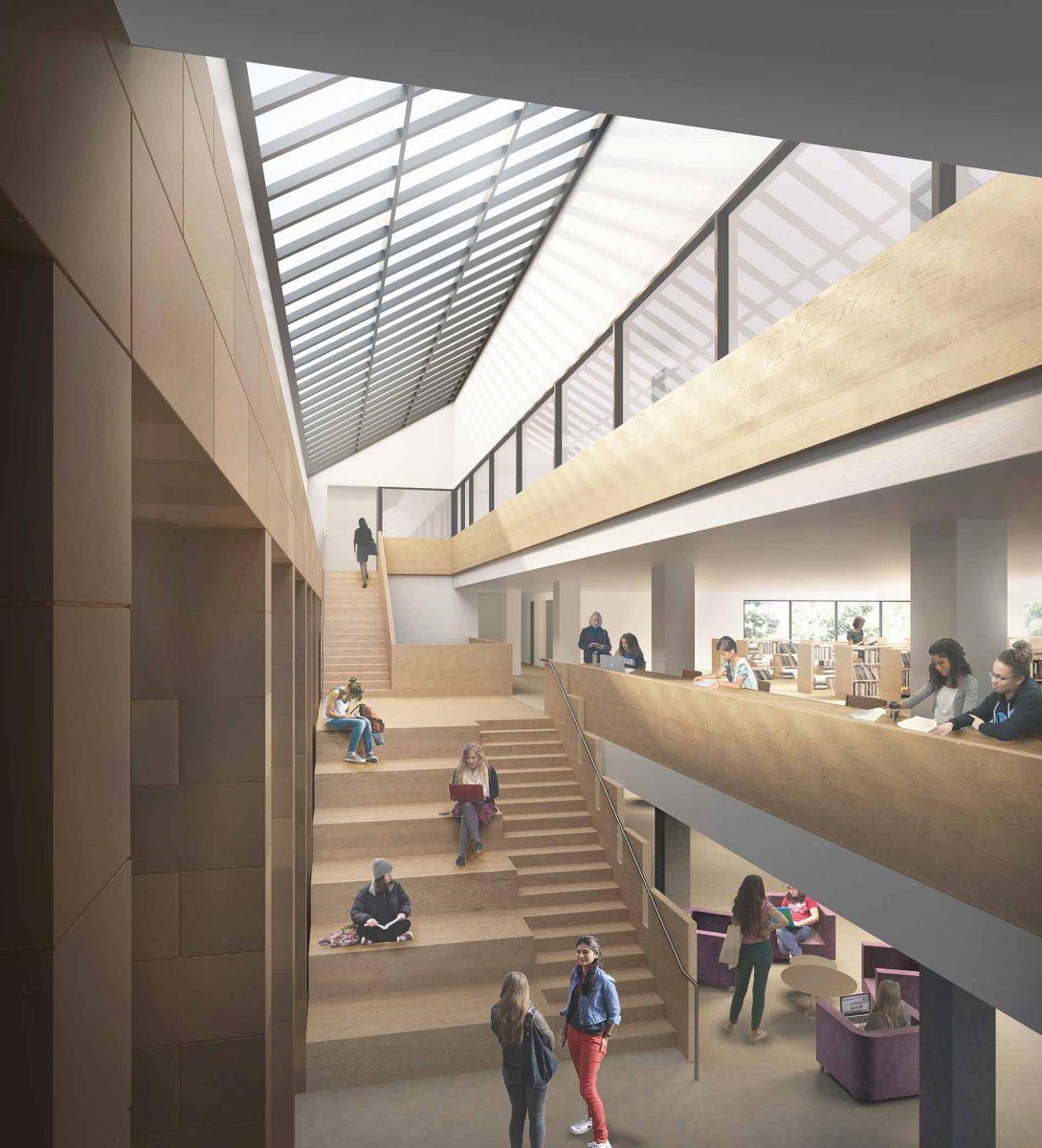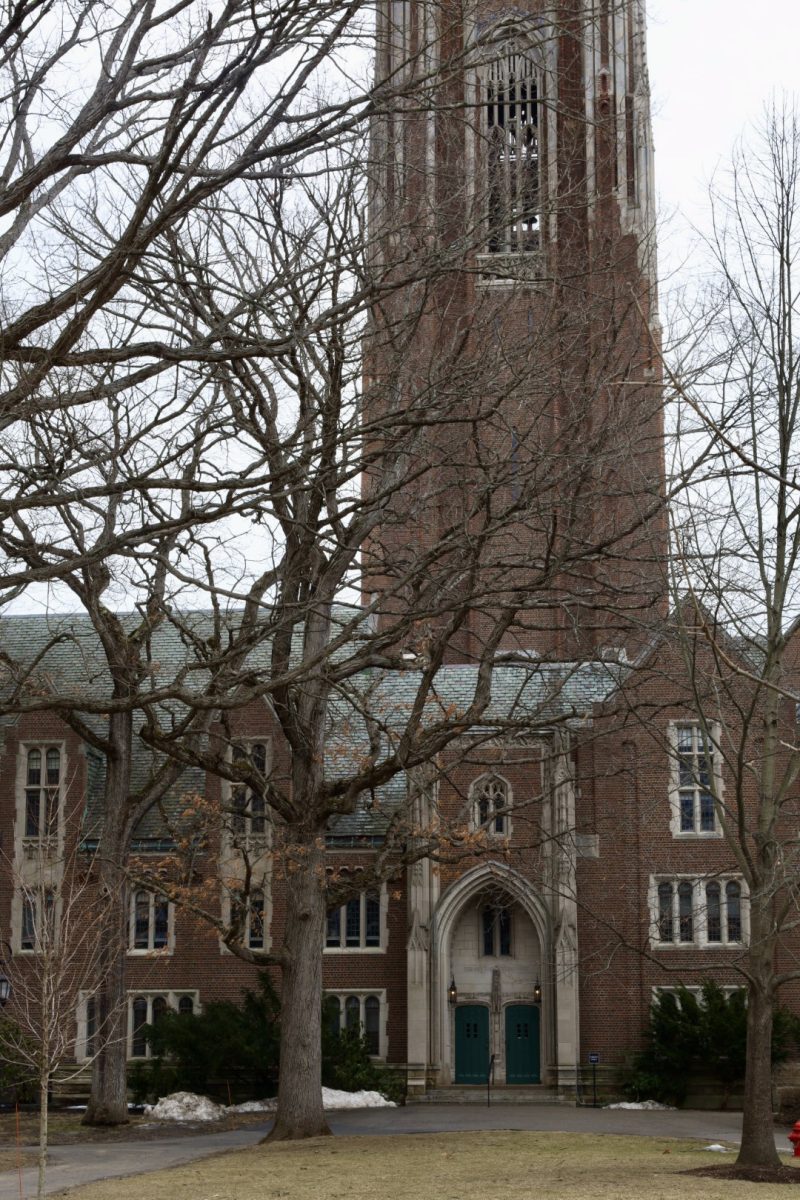President Paula Johnson shared an email titled “Major gift in support of the Clapp Library renovation” to the Wellesley College community on March 6, 2024, informing that thanks to recent donations, the Clapp Library renovation project will expand to include additional enhancements and consequently have a later completion date.
President Johnson first announced the “original” Clapp renovation plan in April 2023, which largely addressed urgent infrastructural needs of the library.
“The primary goal for the Clapp renovation is to address critical repairs of the failing building infrastructure: heating, cooling, plumbing, electrical systems, roof repairs and accessibility upgrades. Clapp Library was constructed in 1910, with additions in 1915, 1956 and 1975, and most of the infrastructure is dated. The majority of the cost and scope is allocated for these costly upgrades,” Director of Planning, Design & Construction in the Facilities Department Michelle Maheu said.
The original Clapp renovation plan also included improvements in the Archives and Special collections’ teaching spaces, the restoration of the historic Reading Room, the creation of a new testing center for accommodations, an upgraded Maker Space and a new café. Construction of this project began in late December 2023 and was expected to be completed in January 2025.
However, the March 6, 2024 college announcement informed that the Clapp project will now be completed in late summer of 2025 — in time for the beginning of the 2025-26 academic year — because major donations opened up the possibility to implement programmatic changes beyond structural fixes.
The updated Clapp renovation plan includes three additional enhancements: the relocation of the Pforzheimer Learning and Teaching Center (PLTC) and Accessibility and Disability Resources (ADR) to a more central location, a new staircase and the modernization of the library’s lobby and service desk.
“Moving the PLTC and ADR … from the third floor to the large area on the second floor adjacent to the presidential portraits reading room … will allow us to design spaces for these important student-facing programs that meet today’s and tomorrow’s needs,” Maheu said.
Those involved in the planning process of the Clapp Project hope that the new staircase will become the centerpiece for the library, encouraging movement between floors and bringing in natural light from the atrium to the ground floor.
“There’s going to be substantially more space and openness … The stairway going down and opening up and perhaps makes more visible and more accessible the makerspace and the café, which we see increasing interest and desire. We want to promote broad student use of those spaces as a gathering space with Clapp as a central part of our community,” member of Advisory Committee on Library and Technology Policy (ACLTP) Jonathan Kemp said.
Despite these benefits, some students express frustration over the extended closure of the library on top of the tuition increase.
“I think the library is central to a college experience, and while I do enjoy the mods, it sucks that the library is closed and at the same time they are raising tuition. I don’t know how much student voice was in this decision. It’s a long time for [the library to be closed], and I also don’t know how many people would like to choose this to be where their tuition is going,” first-year Hadley Roberts said.
Various faculty members share a disappointment over the extension of the project but feel that its long-term benefits for the institution outweighs this drawback.
“One does not close a facility or relocate a facility like the library without substantial thought on both the impact that’s going to happen and the benefit that you’re going to get from that closure,” Kemp said. “It is really important to say it does pain me that the library will not be available for those extra six months. That is something we did not take lightly in our support of this plan to further extend the library renovation plan. But on the balance with the addition of this newer bold vision for how we want our library to be with the addition of the two longtime college donors who are willing to help support this bolder vision, we felt that on balance, it was something that would best serve many generations of Wellesley.”
The current Clapp Project plan is a result of discussions over multiple years from various parties, including students. Members from ACLTP, Library and Technology Services (LTS), the Provost’s and Deans’ office, Facilities Design and Construction, the Student Leadership Advisory Group, the Capital Renewal Executive Committee (senior-level administrators), the Board of Trustees have been meeting and other affected parties have been meeting since 2022 to evaluate the needs of the Clapp Library.
The decision to expand the Clapp Project was collective across all these groups.
“We had a lot of consultation … The unanimous feedback was that with the level of the donation, the types of changes that we can make to Clapp [are] changes that we will otherwise not be able to do in the short run, and therefore, it was deemed important to do it even if it means Clapp will be close some additional number of months,” CIO and Associate Provost Ravi Ravishanker said.
Looking long-term, it is expected that there will not be any further renovations to the library for a few decades.
“Any time you touch a building, it’s not cheap … My understanding is that this should see us through for another 20, 30 years,” Ravishanker said.
People involved with the Clapp Project ultimately emphasize that the renovations are a step forward in redefining the library space as an integral part of learning and community on campus.
“I think we can express our academic priorities and values through the space use and design of the library. I think by improving and modernizing Clapp, we’re able to provide a better library for future generations of students. While the initial vision was to think about things perfunctory, perhaps out of sight of the average library user, this improvement of expansion modernization will really be a substantial benefit to our community and its ability to deliver its resources, its services, fantastic staff and collections,” Kemp said.




